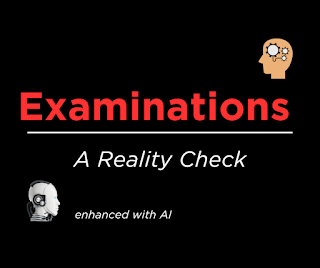Getting the Academic Year Off to the Right Start
In order to set the stage for a successful academic year, it's crucial to begin on the right foot. This blog post delves into a prevalent issue faced by students worldwide—examination anxiety—and addresses it head-on well before the calendar flips to 2024.
Ensuring that students can freely function and excel is inherently tied to the optimal management of their energies, which should be focused on coursework and the eventual challenge of written examinations.
Misdirected energy, squandered on unnecessary psychological burdens like worry, anxiety, or an overwhelming desire to succeed, can derail the academic journey before it even begins.
Understanding the Nature of Examination Anxiety
When I converse with my students about their feelings pre-exam, a singular word often surfaces: 'anxiety.' Rooted in a multitude of fears—from failing, underperforming, to the dread of disappointing others—'fear' is the omnipresent emotion. However, what is this fear, fundamentally? Rather than probing the depths of this emotion, there's a tendency to offer a slew of remedies targeting its various manifestations. These include relaxation techniques, study plans, counselling, supplemental lessons, and positive thinking.
Despite their potential for providing transient comfort, such solutions may inadvertently trigger a perpetual quest for the 'next best' fix, thereby sidestepping the actual issue—persistent anxiety. Stripped of these temporary aids, the underlying anxiety remains unabated, a reality that many educators fail to acknowledge or challenge.
The Roots of Fear in Academic Pursuits
On contemplation, it becomes apparent that this fear is intricately linked to competition, comparison, and the dualistic outcome of rewards and punishments. The educational landscape is often a battleground for placement, ranking, and recognition, fostering an environment where comparisons and competitions are not just the norm but expected. The repercussions of this are dual: while achievements are celebrated with scholarships and accolades, the fear of failure or punishment looms equally large.
The Consequence of Competition and Comparison
The significance of this systemic competition cannot be overstated. When one student's success signals another's failure, and superiority necessitates another's inferiority, the educational journey is marred by a spectrum of emotions, ranging from joy to despair, from envy to resentment. Despite a veneer of collaboration, an undercurrent of competitive strife persists, with each individual vying to surpass the others.
A New Perspective on Education
This introspection brings us to an essential inquiry: Is there an alternative mode of education devoid of these pressures, one that eschews fear and, by extension, anxiety? More crucially, as educators, how can we impart this perspective to our students? The first step, however, is introspection: we must ask ourselves whether we, as educators, recognize this fundamental truth.
Conclusion and Call to Action
As we navigate the complexities of academic pressures, it is our responsibility to foster an environment where learning is joyful and free from the fetters of anxiety. I encourage my fellow educators and students to reflect on these thoughts and to discuss them openly. If you've found value in this post, please share your insights, experiences, and join the conversation below. Together, we can reshape the educational experience to be more nurturing, effective, and devoid of unnecessary stress.
For other exploration on this topic and related educational strategies, consider visiting the following resources:







